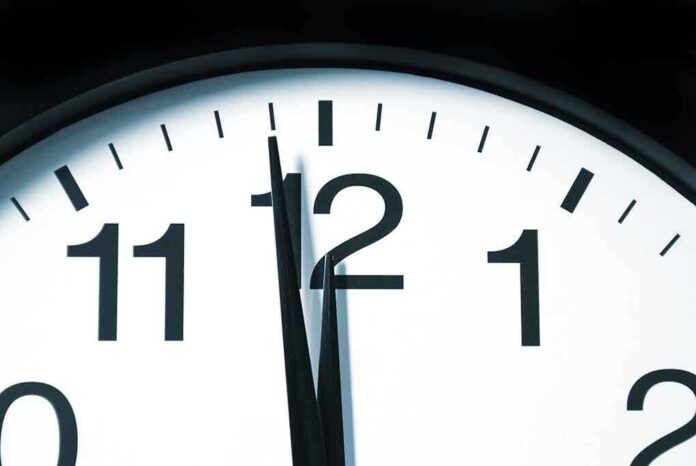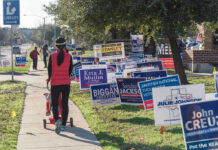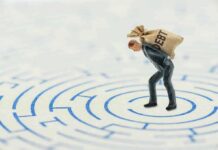
Your brain is not the tireless supercomputer you think it is—science now reveals there’s a precise window each day when your mind transforms into a sharper, more focused, higher-performing version of itself, and missing this window could mean the difference between passing and failing life’s biggest “tests.”
Story Snapshot
- Peak cognitive performance occurs between 11 a.m. and 1 p.m., regardless of your natural chronotype.
- Failure rates for high-stakes tasks dramatically increase outside this midday window.
- Not only test-takers, but also evaluators and decision-makers fall victim to mental fatigue as the day drags on.
- Leveraging this time-of-day effect can give you a real-world edge in everything from exams to job interviews or sales pitches.
Midday: The Hidden Golden Hour of Mental Sharpness
Data from over 100,000 oral exams at a major Italian university produced a bell curve that would make even the most skeptical statistician’s eyebrows arch: students who took exams between 11 a.m. and 1 p.m. were far more likely to pass than those who faced the same questions earlier or later. This midday sweet spot held true regardless of the students’ chronotype—their natural morning or evening preferences—suggesting that our brains are hardwired for a collective surge in cognitive prowess right around lunch. The findings upend the common advice to “rise and grind,” and instead shine a light on a narrow window when both mind and mood are primed for performance.
Outside that window, the odds turn against you. Mental fatigue builds stealthily as the morning wears on, and by the late afternoon, both students and examiners are running on cognitive fumes. This is not just about sleepiness or boredom; it’s about ego depletion—a phenomenon that saps our self-control and decision-making skills as the day progresses. As the study’s authors noted, both test-takers and graders are vulnerable, with assessors becoming more rigid and less flexible as their mental resources dwindle. The result? A higher rejection bias and reduced likelihood of favorable outcomes, whether you’re seeking a diploma, a job, or a deal.
The Domino Effect of Cognitive Fatigue on Decision Makers
What happens in the exam room mirrors what happens in the boardroom—and even the courtroom. A landmark study of Israeli parole judges found that favorable rulings were sky-high first thing in the morning, but plummeted as the day wore on, bottoming out at nearly zero before lunch. After a break or meal, the rate would spike back up, only to fall again. The pattern matches the bell curve seen in academic testing: decision makers, just like test-takers, run out of cognitive steam. This means the quality of your performance and the fairness of your evaluation are both at the mercy of the clock, not just your preparation or credentials. If you want the odds in your favor, schedule your big moment when brains on both sides of the table are at their sharpest.
Stress compounds the problem. Anticipating a high-stakes event later in the day leads to rumination, anxiety, and a drain on mental energy before you even show up. By the time the meeting or interview begins, you are far less equipped to think clearly, recall critical information, or make persuasive arguments. The takeaway? Whenever possible, advocate for a midday slot—your brain and your future self will thank you.
Chronotypes, Common Sense, and the Case for Smarter Scheduling
For years, experts have debated the value of aligning work and testing schedules with individual chronotypes—early birds versus night owls. The new research suggests there’s a universal midday advantage that overrides individual differences, at least when it comes to complex cognitive tasks. The implications extend beyond academia. High-stakes negotiations, job interviews, sales presentations, and performance reviews are all “tests” in disguise. The science backs what common sense has long suspected: if you want to win, go when your mind is at its peak and your evaluator’s judgment is still fresh. American conservative values celebrate self-reliance and merit, but sometimes the most effective way to get ahead is by working smarter, not just harder.
Ignoring these findings is not just a personal oversight—it can be a costly strategic blunder. In a world where small advantages separate winners from also-rans, understanding and exploiting the brain’s daily rhythms might be the simplest, most overlooked performance hack available. The next time you get to pick your moment—whether it’s a pivotal pitch, a critical conversation, or a make-or-break exam—choose the midday slot. The science is in: this is when your mind, and your evaluator’s, are most likely to say “yes.”
Sources:
PMC Article on Circadian Regulation
Proceedings of the National Academy of Science
Inc. Article on Cognitive Benefits















